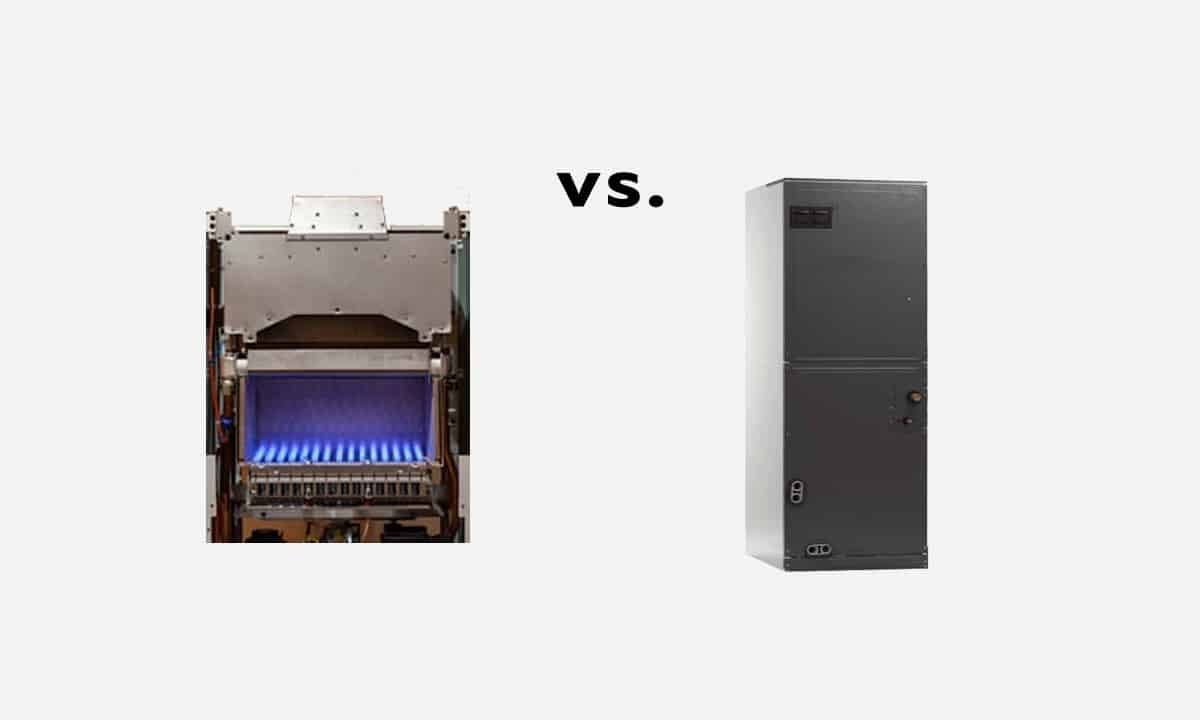It’s that time of year again, and we’re in full-blown fall mode. Lots of things are really great about this season: cool mornings, pumpkin-spice everything, sweater weather, beautiful fall leaves. But you know what we don’t love? Coming home from work and it’s already dark outside. Ugh! And it might be time to reevaluate your heating needs.
Thinking about turning on your heating for the first time each year can be complicated. It’s more than just arguing with your family about the perfect temperature, which gets even more complicated when it feels like a comfortable 70°F in the afternoon but a -30°F in the early morning. (OK, that might be a slight exaggeration. Maybe).
Turning on your heating for the first time might also spark some discussion about a new heating solution altogether. We’re here to make your life a little easier. Here’s an ultimate gas vs. electric heating guide to help you decide what’s best for you and your family.
How Furnaces Work: A Quick Overview
Whether you have a gas or electric heating system, your home is likely heated with a forced-air heating system. When the temperature falls below your thermostat setting, a signal gets sent to your furnace to kick on and start heating your home. Then, the heated air is forced through your vents with a blower.
In a gas unit, the signal from your thermostat causes a pilot light to ignite the main burner in your furnace. This burner heats the air that will circulate throughout your home. An electric furnace does the same thing, but instead of using gas to ignite a pilot light, the main burner is heated using an electrical ignition system.
That’s pretty much where the similarities between gas and electric heating end. After that, they’re very different when it comes to cost, efficiency, and overall comfort.
1. Gas Furnace Pros
- Gas heating is generally less expensive to operate: Most gas heating is powered by natural gas. In recent years, natural gas costs have actually decreased, while electricity costs are generally on the rise.
- Gas furnaces heat your home more quickly: The heat produced by your gas system is generally hotter than electric furnaces. This means your home gets warmer in a shorter amount of time, making gas heating better for colder climates.
- Gas furnaces are more efficient: Gas takes less energy to heat the air circulating through your home. Natural gas also burns cleaner than coal, which produces the electricity needed for electric furnaces.
2. Gas Furnace Cons
- Gas furnaces wear out faster: Gas furnaces only last up to 20 years – and that’s with regular maintenance and repairs.
- Gas furnaces are more complicated and expensive: Gas furnaces have combustive elements that make professional installation a must. Calling the pros is also necessary if you haven’t had gas heating before, because these furnaces require venting to the outside of your home. If you don’t already have a chimney or a vent to the outside, a professional will have to install one. These units also generally cost two- to three-times more than electric furnaces.
- Gas heating is more dangerous: Gas heating produces carbon monoxide (CO). While most of the time you don’t need to worry, a build-up over time means serious risk to you and your family. At best, CO poisoning can cause dizziness and drowsiness. At worst, CO poisoning is deadly (and kills very quickly). It’s important to have CO detectors in your home and schedule regular maintenance to avoid the unthinkable.
3. Electric Furnace Pros
- Electric furnaces have less up-front costs: They’re generally cheaper and easier to install, which means a lower up-front investment. You’ll also save in maintenance costs, since electric heating doesn’t require as much attention as the gas option.
- Electric furnaces last longer: If you keep your unit in tip-top shape, you can expect up to 30 years of heating from your electric furnace.
- Electric furnaces are generally safer: There’s still a risk of fire with electric furnaces, but you don’t have to worry about CO poisoning.
4. Electric Furnace Cons
- Electric furnaces cost more month-to-month: While the up-front costs might be tempting, electric furnaces cost more to operate monthly. Electricity is more expensive per unit than natural gas, making the lifetime cost higher than gas heating.
- Electric heating takes more time: The heat from your furnace won’t reach the high temperatures of a gas furnace. This means you’ll be a little colder for a little longer.
- Electric heating is less efficient: Electric heating takes more energy to heat the air circulating throughout your home. Electric heating is also “less clean” than gas heating. Ultimately, burning coal is this furnace’s main source of electrical power, which is worse for the environment than natural gas.
5. The Bottom Line
Dollar for dollar, the gas furnace is probably your best bet. But it’s also important to consider the size needed, what fuel types you have access to, and what heating system you currently have.
It’s probably better to stick with gas if:
- You have access to natural gas.
- You live in a colder climate or need your furnace for several months out of the year.
- You currently have a gas furnace.
Electric might be the way to go if:
- You don’t have access to natural gas.
- You live in a more mild climate.
- You already have an electric unit.
Every situation is unique. As your Calgary HVAC pros, we can help you decide the best product for you and your family.






